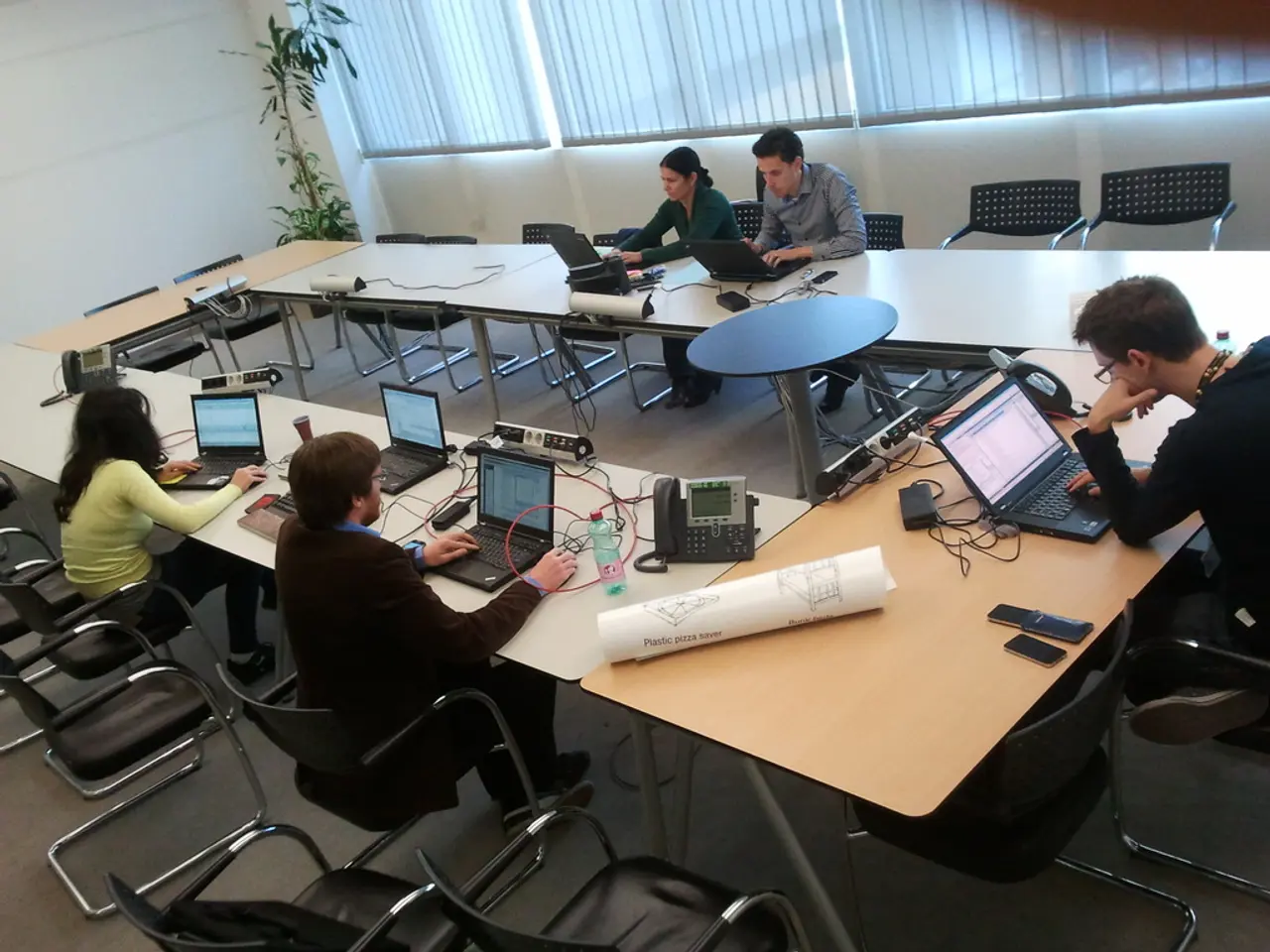Working from home versus office: Insights from scientific research
In today's digital age, the way we work has undergone a significant transformation. Among the various work arrangements, hybrid work - a blend of office and remote work - has gained prominence. Recent studies suggest that this approach tends to boost productivity and improve employee happiness compared to full-time office work.
Effective communication, however, remains a challenge in a remote setting. A study published in Nature Human Behaviour revealed that communication between employees and groups slowed down and became more formulaic and self-contained when employees worked remotely. This underscores the importance of allowing specific time for communication and making an effort to maintain a connection.
One of the key advantages of hybrid work is the flexibility it offers. A 2025 global study by International Workplace Group and Arup found that hybrid work can increase productivity by around 11%, driven largely by less commuting time, fewer distractions, and more focus time. Employees reported higher "excellent" productivity levels in flexible workspaces than solely working from home.
Regarding mental health and happiness, hybrid work shows benefits compared to full-time office work. Burnout was reported less frequently among hybrid workers, and only 1% of professionals felt full-time office work was ideal for mental well-being. A large trial of reduced working hours (often overlapping with hybrid models) found reduced burnout and improved job satisfaction and health.
However, some evidence suggests that hybrid work may hurt collaboration and weaken organizational culture. These mixed findings highlight that the effects of hybrid work depend on context, implementation, and organizational support. To mitigate these challenges, a blend of home and office working may be the best approach, allowing workers to experience a 'best of both worlds' effect.
Remote work offers a better work-life balance for some employees. Going for a short walk at the start and end of each working day can help create a 'false commute', while having dedicated 'work zones' in your house can help with the ability to switch from 'work mode' to 'home mode'. Wearing shoes during the working day and then kicking them off when finished can also signal the end of work.
Despite these benefits, concerns about the productivity of remote workers persist. Surveys reveal most remote workers report being equally, if not more productive. Factors linked to improved productivity for remote workers include improved diet, better sleep, more exercise, greener environments, and pleasant background music. Remote work reduces mental drain substantially, making it potentially less mentally demanding than working in a designated office five days a week.
However, if working from home does actually produce significant gains in productivity and worker happiness, these gains may not be experienced by those who could use them the most, such as those in lower-paid jobs or those who can't work from home. Embracing autonomy is a core element of many of the apparent benefits of remote working, as it increases worker happiness, reduces stress, and improves productivity.
In conclusion, current scientific evidence strongly supports hybrid work as beneficial for productivity and employee happiness compared to full-time office work. However, it's crucial to manage communication and collaboration effectively to reap these benefits. The brain organizes the information we use to navigate the world and the events we experience by way of cognitive frameworks called 'schemas'. Understanding these schemas can help us design work arrangements that promote productivity, happiness, and well-being.
- Advancements in technology have enabled hybrid work, a blend of office and remote work, to become popular in today's digital age.
- Studies suggest that the blend of office and remote work tends to boost productivity and improve employee happiness compared to full-time office work.
- Effective communication is a challenge in a remote setting, due to slower and more formulaic communication between employees and groups.
- Flexibility is one of the key advantages of hybrid work, leading to increased productivity by around 11%.
- Hybrid work shows benefits for mental health and happiness compared to full-time office work, with fewer reports of burnout.
- Some evidence suggests that hybrid work may hurt collaboration and weaken organizational culture, but a blend of home and office working might mitigate these challenges.
- The benefits of remote work, such as a better work-life balance and improved productivity, may not be experienced by lower-paid workers or those unable to work from home. Understanding cognitive frameworks like 'schemas' can help design work arrangements that promote productivity, happiness, and well-being in the future.




